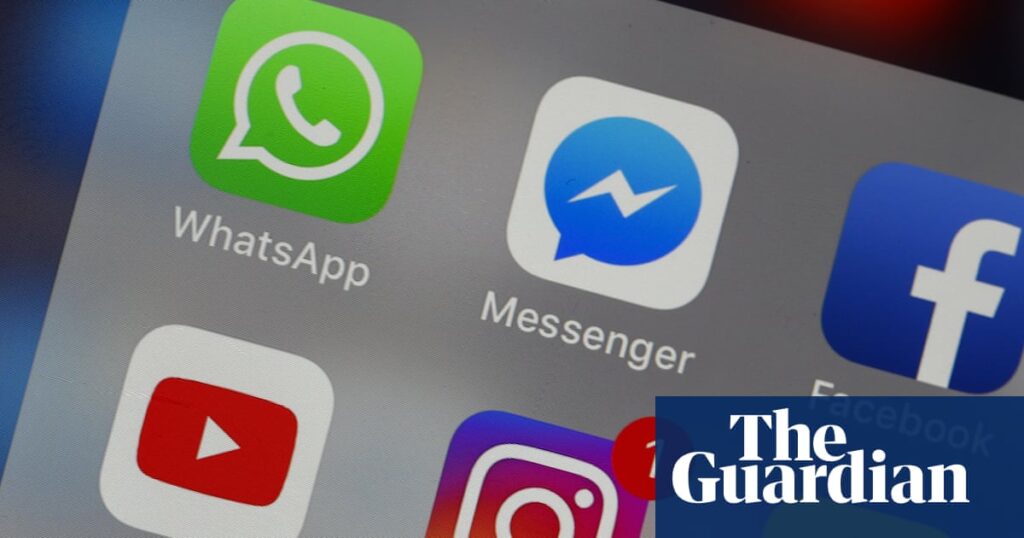The Australian government will imminently announce which social media platforms will be included in the under-16s ban.
The social services minister, Tanya Plibersek, on Monday said the government would not be “bullied out of taking action by any social media giant”. But the tech companies are doing their best to argue that their services should be exempt from the legislation that comes into effect in December.
Here’s what the social media companies are doing to make their case.
The parent company of Facebook and Instagram has been showcasing its teen account settings for Instagram as a not-so-subtle message to the government that it takes teen safety on its platform seriously.
Last week, Meta announced new protections around direct messages, including blocking features, in addition to the existing protections around automatically censoring potentially nude images.
Meta also hosted a “screen smart” Instagram safety event for “parent creators” in Sydney last week, hosted by Sarah Harris.
Sign up: AU Breaking News email
YouTube
YouTube has been even less subtle. The platform was originally promised an exemption from the social media ban last year by then communications minister Michelle Rowland.
The eSafety commissioner, however, last month recommended to the government that YouTube not be excluded, highlighting research showing when children encounter harmful material, it is on YouTube more than any other platform.
Since then, the company has been in a lobbying blitz. In addition to full-page ads in newspapers and billboards across the country saying YouTube is in a “category of one” of services for everyone, the company has sent a letter to the communications minister, Anika Wells, raising the threat of a high court challenge should YouTube be included in the ban.
As Guardian Australia reported last month, Google this week will host its annual showcase in Parliament House on Wednesday, where content creators such as the Mik Maks – children’s musicians who have argued against YouTube being included in the ban – will make an appearance and no doubt make their views known to the politicians.
Last year’s event featured the Wiggles, who met with Rowland. The meeting was mentioned in a letter the global CEO of YouTube, Neal Mohan, sent to Rowland last year pleading for an exemption less than 48 hours before the exemption was promised.
Guardian Australia reported last week YouTube had also met with Wells this month to discuss the ban directly.
TikTok
This month TikTok has been running ads both on TikTok itself and on Meta’s platforms about the educational benefits for teens on the vertical video platform.
after newsletter promotion
“1.7m #fishtok videos are helping them swap screen time for time outdoors,” one ad stated, in a nod to the government’s claim that the ban will lead to children spending more time off their screens and outside. “They’re mastering their chef skills thanks to over 13m cooking videos,” it added.
“One in three are visiting the stem feed every week, inspiring their learning,” another stated.
Snapchat
On the messaging app Snapchat, much of the focus has been on user safety. Guardian Australia reported in May that an 11-year-old Australian girl, who added random people on Snapchat as part of an informal competition with her best friend to get a high score in the app, went on to be sexually abused by one of the people she added.
This month, Snap announced it had partnered with with the Australian federal police-led Australian Centre to Counter Child Exploitation for a series of educational videos rolled out on several Australian influencer accounts, as well as ads advising parents and teens how to spot grooming and sextortion.
“The safety of the Snapchat community has always been our priority, and working closely with law enforcement and expert safety partners is a critical part of that ongoing effort,” Ryan Ferguson, Snap’s Australian managing director, said.
The company also reiterated its teen account settings for 13 to 17-year-olds that include private accounts by default and in-chat warnings when communicating with someone with whom they don’t share mutual friends or who is not in their contact list.
So far, the government appears to be not for turning.
“There is no doubt that young people are being impacted adversely in their mental health by some of the engagement with social media and that is why the government has acted,” the prime minister, Anthony Albanese, told ABC’s Insiders on Sunday.
“I’ll be meeting with parents again this week of people who’ve been through tragedy, frankly … And one of the things that concerns some of the social media companies is that we are leading the world and I’m proud that we’re prepared to stand these people up effectively from their threats.”


